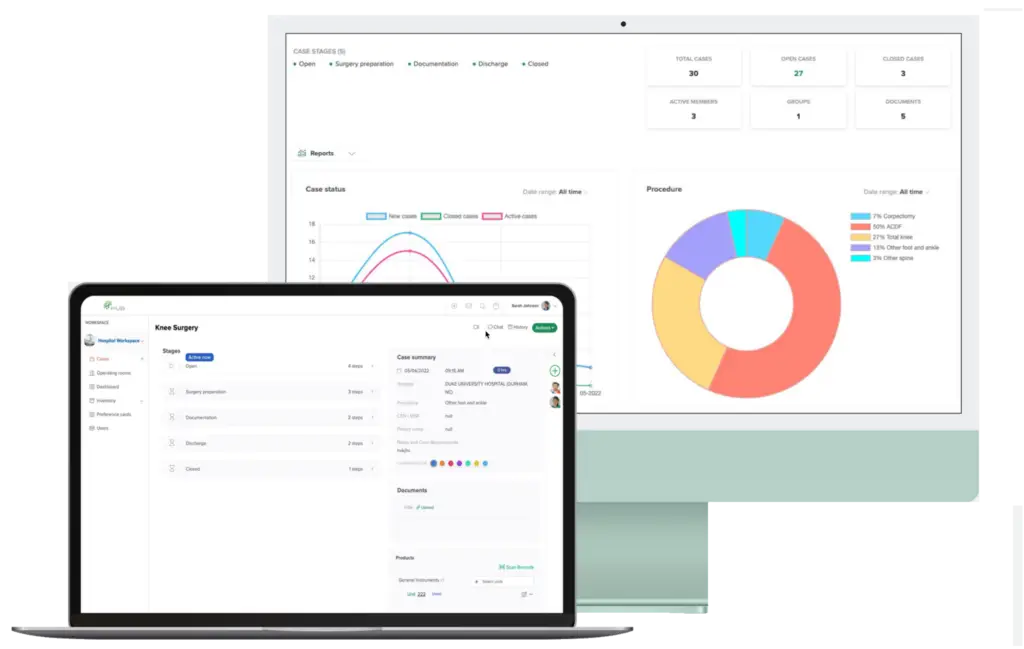Centers for Medicare & Medicaid Services (CMS) audits are critical for ensuring compliance and maintaining the integrity of healthcare operations. However, these audits can be complex and time-consuming. To streamline this process, innovative audit solutions have emerged, offering significant advantages in efficiency and accuracy. This article explores the best solutions to help healthcare organizations manage CMS audits effectively.

Understanding CMS Audits
CMS audits are conducted to verify that healthcare providers comply with federal regulations and billing requirements. These audits ensure that organizations adhere to proper coding, billing practices, and patient care standards. Non-compliance can result in penalties, fines, or loss of funding, making it essential for healthcare providers to prepare thoroughly for these audits.
Innovative Audit Solutions
1. Automated Audit Software
Automated audit software leverages artificial intelligence and machine learning to streamline the audit process. These tools can quickly analyze large volumes of data, identify discrepancies, and generate detailed reports. Key benefits include:
- Efficiency: Automation significantly reduces the time required for data analysis.
- Accuracy: Minimizes human error by providing precise data insights.
- Compliance: Ensures adherence to CMS guidelines through continuous monitoring.
2. Electronic Health Record (EHR) Systems
EHR systems are invaluable for maintaining accurate and accessible patient records. They facilitate seamless data retrieval and support compliance by ensuring all patient information is up-to-date and properly documented. Key features include:
- Centralized Data Storage: Consolidates all patient information in one place.
- Real-Time Updates: Ensures records are always current and accurate.
- Audit Trails: Tracks changes and access to patient records, providing a clear audit trail.
3. Data Analytics Tools
Advanced data analytics tools can identify trends and patterns in healthcare data, helping organizations spot potential compliance issues before they become problems. These tools offer:
- Predictive Analysis: Anticipates areas of concern based on historical data.
- Detailed Reporting: Generates comprehensive reports for audit preparation.
- Benchmarking: Compares performance against industry standards to ensure compliance.
4. Document Management Systems
Effective document management systems streamline the storage, retrieval, and sharing of critical documents. These systems support compliance by ensuring that all required documentation is easily accessible and well-organized. Benefits include:
- Secure Storage: Protects sensitive information with advanced security features.
- Version Control: Maintains accurate records of document revisions.
- Accessibility: Enables quick access to necessary documents during an audit.
5. Compliance Management Software
Compliance management software helps healthcare organizations track and manage their adherence to CMS regulations. These tools offer:
- Regulation Tracking: Monitors updates to CMS guidelines and ensures compliance.
- Risk Management: Identifies and mitigates potential compliance risks.
- Training Modules: Provides staff training on compliance requirements.

Key Features of HUB for CMS Audits
Staying Informed
- Regulation Updates: HUB keeps ASCs updated on the latest CMS regulations and healthcare laws, ensuring you’re always in compliance.
Efficient Documentation Management
- Centralized Document Management: Organize and access all necessary paperwork easily with HUB’s document management system. Find out more about HUB’s Document Management.
Conducting Self-Audits
- Analytics and Reporting Tools: Regular self-audits are simplified with HUB’s analytics, identifying potential compliance issues before they become critical.

Staff Training and Education
- Educational Modules: HUB’s educational resources help train your staff on CMS compliance and accurate record-keeping.
Audit Team Coordination
- Task Management: Assign and coordinate your internal audit team efficiently using HUB’s task management features.

Effective Communication During Audits
- Communication Tools: Facilitate effective interaction with the audit team and clarify auditor inquiries quickly using HUB’s communication tools.
Post-Audit Management
- Reviewing Audit Results: Use HUB’s data tracking to review and understand audit findings comprehensively.
- Developing Correction Plans: Create action plans to address non-compliance areas using HUB.
- Implementing Changes: Ensure timely implementation of necessary changes using HUB’s project management features.
- Ongoing Monitoring: Continuously monitor improvements using HUB’s reporting capabilities.
Enhancing Compliance with Technology
- Real-Time Data Tracking: Keep up-to-date with all operational aspects relevant to CMS compliance.
- Compliance Alerts: Receive timely notifications on compliance-related matters.
- Efficient Reporting Tools: Generate detailed reports for internal reviews and audit responses.
Conclusion
HUB Healthcare offers a comprehensive solution for managing CMS audits, transforming a daunting task into a streamlined and efficient process. By leveraging HUB’s technology, ASCs can navigate audits smoothly, leading to improved operations and enhanced patient care quality. To understand more about HUB’s audit management capabilities, visit HUB Healthcare’s Audit Management Features.
For a complete guide on CMS audit procedures and expectations, ASCs can refer to the CMS Audit Guide. Remember, a well-managed audit with HUB Healthcare is not only a compliance necessity but also an opportunity for operational improvement and excellence in patient care.

How HUB Healthcare Can Help
HUB Healthcare offers a comprehensive solution designed to streamline CMS audit preparation and compliance. Our platform includes healthcare document management, data analytics, and compliance management tools to ensure your organization is always audit-ready. By leveraging HUB Healthcare’s advanced features, healthcare providers can efficiently manage patient records, track compliance, and generate detailed reports for audits. This not only simplifies the audit process but also enhances overall operational efficiency.





